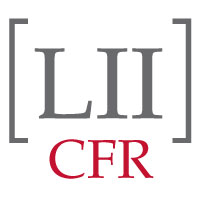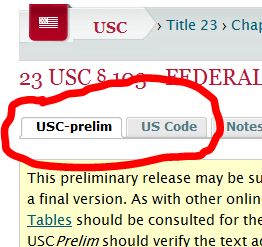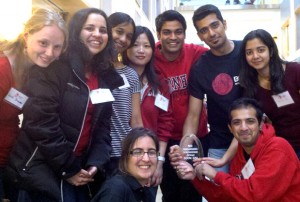LII Releases Online Code of Federal Regulations (CFR)
The nation’s most comprehensive set of laws, the Code of Federal Regulations (CFR), contains rules that impact nearly all areas of American business, and the LII”s new electronic edition offers users an easier path to finding and understanding the regulations with which they need to comply.
This new online edition of the CFR is the result of an unprecedented two-year collaboration between the Government Printing Office (GPO), the Legal Information Institute at Cornell Law School (LII), and the Cornell Law Library.
The project implemented features that have been often requested by government regulators, corporate counsel, and law librarians. “The LII’s edition of the CFR has the same search and navigation features that have made its edition of the United States Code the leading free, online source for Federal statutes for over a decade,” said Thomas R. Bruce, Director of the LII. “We’ve added linked cross-references both within the CFR and to relevant parts of the United States Code, something no other freely-available collection has. This will help users find other government regulations that impact them that they may not have found before.”
The CFR is extremely complex, and yet citizens are expected to adhere to all of its regulations. The results of this partnership ensure that the latest information is always available, easier to use and understand, and entirely free of charge.
“This open-government project demonstrates that partnerships between government and nonprofit groups can do more for the American public than either could accomplish on their own,” Bruce said.
Cornell Law Librarian Femi Cadmus agrees. “Partnerships such as these are important because they expand and enrich the level of research support that innovative libraries such as the Cornell Law Library can provide to an extensive network of users both nationally and globally.”
In addition to its improved navigation, the LII CFR also contains links to relevant statutory authority and to rulemaking dockets for pending regulations that may affect the section the user is viewing. The LII edition is updated concurrently with updates to the GPO’s Federal Digital System data on which it is based, with links from each page to the Office of the Federal Register’s e-CFR edition for more recent updates.
The LII is actively experimenting with new features based on the capabilities of the Semantic Web. For example, users can now search Title 21 using brand names for drugs (such as Tylenol), and receive the generic name for the drug (acetaminophen) as a suggested term. Other near-term enhancements will include searches by United Nations product code, the identification and linking of relevant agency guidance information for each Part and Section, and a wide variety of Linked Data offerings.






 Today we presented a
Today we presented a  Most of you will have seen this tweeted by now, but our
Most of you will have seen this tweeted by now, but our